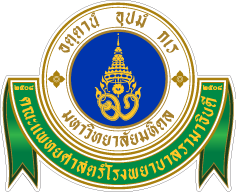Independent Study/Clinical Nursing
Procedure for Enrolling in Independent Study/Clinical Nursing Study:
1. Independent study/clinical nursing study requires approximately 45 hours of work per credit of enrollment.
2. The student initiates independent study/clinical nursing study.
3. The student discusses the focus of the independent study/clinical nursing study with a faculty member who will supervise the experience.
4. The student completes the form Ph.D. 001, obtains the approval of the faculty supervisor, and subsequently, the approval the Chairperson of the Doctoral Program.
5. This procedure for approval precedes formal registration; therefore, sufficient time needs to be allowed
1. Independent study/clinical nursing study requires approximately 45 hours of work per credit of enrollment.
2. The student initiates independent study/clinical nursing study.
3. The student discusses the focus of the independent study/clinical nursing study with a faculty member who will supervise the experience.
4. The student completes the form Ph.D. 001, obtains the approval of the faculty supervisor, and subsequently, the approval the Chairperson of the Doctoral Program.
5. This procedure for approval precedes formal registration; therefore, sufficient time needs to be allowed
The Faculty Advisor
The faculty advisor is assigned by the chairperson in consult with the Doctoral Program Committee. Every effort is made to “match” the student with an advisor whose research and clinical interests are similar to those of the student. Also, an effort is made to consider faculty workloads, so that advisement load is well distributed.
Most students keep the same academic advisor throughout their coursework. However, if a student should have a reason to request a change of advisor, this may be done in writing to the chairman of Doctoral Program, providing a justification for the request.
The advisor helps the student to plan initial coursework. By the time the student is ready to take the qualifying examination, the role of the advisor is less active and the student’s research advisors begin to play a major role.
The faculty advisor is assigned by the chairperson in consult with the Doctoral Program Committee. Every effort is made to “match” the student with an advisor whose research and clinical interests are similar to those of the student. Also, an effort is made to consider faculty workloads, so that advisement load is well distributed.
Most students keep the same academic advisor throughout their coursework. However, if a student should have a reason to request a change of advisor, this may be done in writing to the chairman of Doctoral Program, providing a justification for the request.
The advisor helps the student to plan initial coursework. By the time the student is ready to take the qualifying examination, the role of the advisor is less active and the student’s research advisors begin to play a major role.
Role of Advisor
Faculty advisors contribute to their students’ planning in the following ways:
- Primary faculty contact person for the student.
- Provide expertise in content areas related to student interests.
- Information source for program planning.
- Consult for university and school resources.
- Advise on professional development matters and career counseling.
Faculty advisors contribute to their students’ planning in the following ways:
- Primary faculty contact person for the student.
- Provide expertise in content areas related to student interests.
- Information source for program planning.
- Consult for university and school resources.
- Advise on professional development matters and career counseling.
